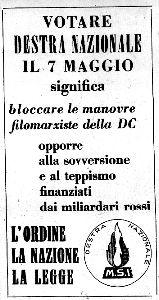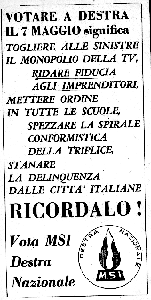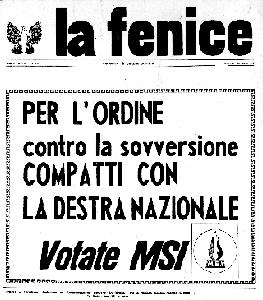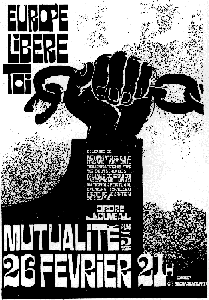The starting point for the riflections of rauti's group is the tear down of ideologies liberal and marxists, both unable to answer to society's needs, and moreover, of the young generations. Capitalism with his making good any relation, has destroyed any chance to live in community, genuine spirithual: massification, consumism and alienation - not any longer disorder, subversion and communism - are the real problems of contemporary society.



By Centro Sociale La Strada............Last Modified in 27/12/1996 










